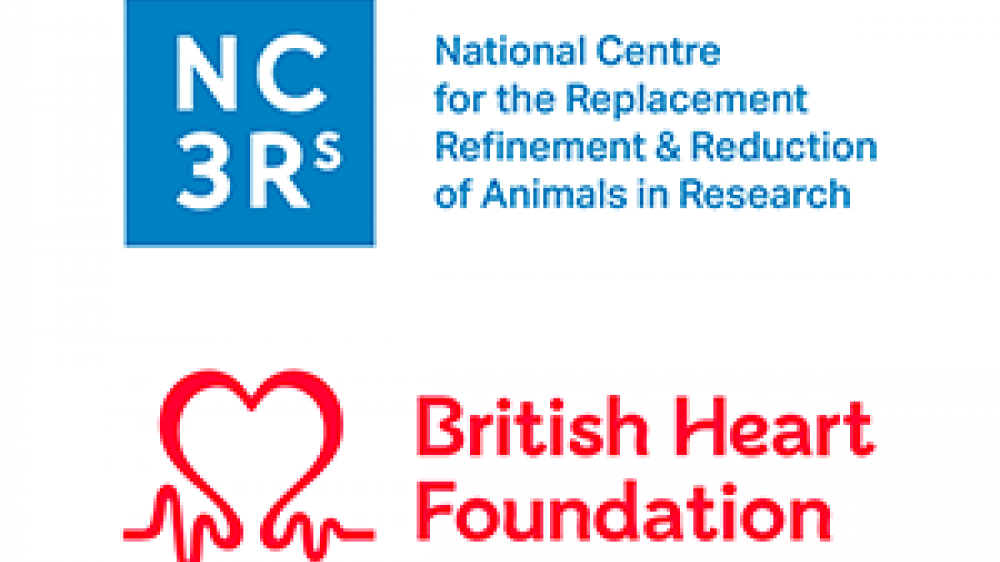New PhD studentship awards announced

The NC3Rs and the British Heart Foundation partner to fund new PhD studentship awards.
We are pleased to announce 15 new PhD studentship awards totalling £1.35M. The awards aim to embed the 3Rs in the training of early career scientists from a broad range of research backgrounds, and are each worth £90,000 over three years.
This year, three of the studentships are awarded jointly with the British Heart Foundation (BHF). These NC3Rs-BHF projects seek to achieve 3Rs impact in important areas in cardiovascular research, as well as ultimately improving human health. The awards include developing models of artery injury and aortic aneurysm that use fewer animals, and a project that explores the similarities between fruit fly and mammalian heart, potentially providing a new alternative model.
The remaining 12 NC3Rs-funded projects aim to replace, refine or reduce the use of animals in research areas such as cancer, stroke, neurodegenerative disease, immunology, and drug development. These projects will develop cutting edge technologies and models to better understanding disease and help find effective new treatments.
Dr Vicky Robinson CBE, Chief Executive of the NC3Rs said: “We are particularly excited about our PhD studentship partnership with the British Heart Foundation and hope that this will encourage other charities to work with the NC3Rs in this way. The new collaboration is a great opportunity to minimise the use of animals in cardiovascular research and at the same time provide benefits for patients.”
Professor Jeremy Pearson, Associate Medical Director at the British Heart Foundation, said: “These projects are a clear demonstration of our commitment to minimising and refining the involvement of animals in our funded research. The studies are also excellent science that could ultimately benefit people who suffer from a heart attack or aortic aneurysm.”
Advertising for suitable candidates will begin in early 2016. For full details and how to apply, visit the studentship vacancies page.
The studentship awards are as follows (in alphabetical order):
- Professor Stuart Allan, University of Manchester, Using zebrafish for pre-clinical brain haemorrhage research
- Dr Tomas Bellamy, University of Nottingham, Microfluidic networks: an in vitro 3D culture system for the investigation of neuron-glial interactions in neurodegeneration
- Professor Margaret Dallman, Imperial College London, Refinement of hematopoietic cell transplantation using optical imaging in zebrafish
- Dr Andrew Devitt, Aston University, Refining an in vitro system of predictive biomarkers of in vivo liposome efficacy
- Professor William Gray, Cardiff University, Developing Human Glioma OrganDot Cultures
- Dr Matthew Harper, University of Cambridge, Reducing animal use in thrombosis research with an ex vivo injury model (NC3Rs-BHF award)
- Dr Jason Johnson, University of Bristol, Development and characterisation of a human ex vivo model of aneurysm (NC3Rs-BHF award)
- Dr Walid Khaled, University of Cambridge, Cas9 mediated in vitro gene editing in primary mammary epithelial cells
- Dr Donna MacCallum, University of Aberdeen, Reducing animal usage in antifungal drug development: iRFP reporter strains and imaging infection
- Dr John Mason, University of Edinburgh, Building brains in a dish - using ES cells to understand brain development
- Dr Afzal Rahman Mohammed, Aston University, Development of a novel cell based bitter taste assessment assay
- Professor James Murray, Cardiff University, Murinised Firefly Luciferase: A new direction towards immune-shielding and biological relevance
- Dr Jeremy Niven, University of Sussex, Developing a Drosophila melanogaster model of the cardiac myocyte action potential to investigate function and performance (NC3Rs-BHF award)
- Professor Stefan Przyborski, Durham University, Development of functional 3D human intestinal mucosae to replace rodent models and improve the predictive accuracy of existing in vitro systems
- Professor Valerie Speirs, University of Leeds, Developing an Organ on a Chip Model to Test the Therapeutic Efficacy of Adhirons in Breast Cancer
Notes for Editors:
Contact the NC3Rs Media Office:
Kasia Makowska, Press and Communications Officer
Email: katarzyna.makowska@nc3rs.org.uk
Tel: 020 7611 2275
- About the NC3Rs
The National Centre for the Replacement, Refinement and Reduction of Animals in Research (NC3Rs) is a leading independent scientific organisation dedicated to replacing, refining and reducing the use of animals in research and testing (the 3Rs). It supports the UK science base by driving and funding innovation and technological developments that minimise the need for animals in research and testing, and lead to improvements in welfare where animals continue to be used. It funds research, supports training and development, and stimulates changes in regulations and practice.
Primarily funded by Government, the NC3Rs is also supported by the charitable and private sectors. It works with scientists in universities and industry in the UK and internationally.
Further information can be found at: www.nc3rs.org.uk @nc3rs http://blog.nc3rs.org.uk
- About the British Heart Foundation
Coronary heart disease is the UK’s single biggest killer. For over 50 years we’ve pioneered research that’s transformed the lives of people living with heart and circulatory conditions. Our work has been central to the discoveries of vital treatments that are changing the fight against heart disease. But so many people still need our help. From babies born with life-threatening heart problems to the many Mums, Dads and Grandparents who survive a heart attack and endure the daily battles of heart failure. Join our fight for every heartbeat in the UK. Every pound raised, minute of your time and donation to our shops will help make a difference to people’s lives.
For more information visit bhf.org.uk
